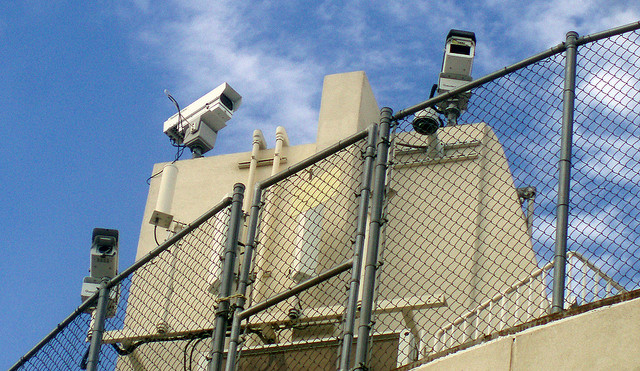You can change the conversation. Chip in to rabble’s donation drive today!
This week, more news emerged about the theft of classified government documents, leaked to the press, that revealed a massive, top-secret surveillance program. No, not news of Edward Snowden and the National Security Agency, but of a group of anti-Vietnam war activists who perpetrated one of the most audacious thefts of government secrets in U.S. history, and who successfully evaded capture, remaining anonymous for more than 40 years. Among them: two professors, a daycare provider and a taxi driver.
Passionately opposed to the U.S. war in Vietnam, this group of seven men and one woman was certain that the FBI, under the direction of J. Edgar Hoover, was spying on citizens and actively suppressing dissent. In order to prove their case, they broke into an FBI field office in the Philadelphia suburb of Media, Pa., on March 8, 1971, and stole all the files inside. What they found, and mailed to the press, exposed COINTELPRO, the FBI’s counterintelligence program, a global, clandestine, unconstitutional practice of surveillance, infiltration and disruption of groups engaged in protest, dissent and social change. Their courageous act of nonviolent burglary shook the FBI, the CIA and other agencies to the core. They triggered congressional investigations, increased oversight and the passage of the Foreign Intelligence Surveillance Act. These activist burglars, most of whom have come forward this week, revealing their names for the first time, have not only a remarkable story to tell about the past, but a critical and informed perspective on Snowden, the NSA and government spying today.
“The citizens’ right to dissent is the last line of defense for freedom,” John Raines told me. He was a professor of religion at Temple University when he, his wife, Bonnie, and the others who intended to break into the FBI office formed what they called the “Citizens’ Commission to Investigate the FBI.” Since John and Bonnie Raines had three children under the age of 10 at the time of the burglary, I asked how they decided to engage in an act that could have sent them both to prison for years. John replied, “We routinely ask, as a society, mothers and fathers to take on as part of their work highly dangerous activities. We ask that of all policemen. We ask that of everybody that works for the fire department. We ask that of mothers and fathers who are sent overseas to defend our freedoms in the Army and Navy. We routinely ask of people to take on jobs that risk their families.” He went on, “As citizens, we stepped forward and did what we had to do because nobody in Washington would.”
Under the leadership of a physics professor from Haverford College, Bill Davidon, the group met and meticulously planned their action. John and Bonnie Raines hosted most of the meetings in their attic. Bonnie posed as a college student writing a paper on career opportunities for women in the FBI, and got an inside look at the Media field office. Keith Forsyth, the cabdriver, took a correspondence course in locksmithing and made his own lock-pick tools to avoid notice of authorities. They chose the night of March 8, 1971, because international attention was gripped by the world heavyweight boxing match between Muhammad Ali and Joe Frazier. The bout, said Forsyth, “would add to the distraction, not only of the police, but of just people in general.”
They broke into the office, stole all the files inside and took them to a farmhouse an hour outside of Philadelphia. They pored over the liberated documents, shocked at what they read. One memo detailed an FBI conference on the New Left, predicting that more FBI interrogations of activists would “enhance the paranoia endemic in these circles and will further serve to get the point across there is an FBI agent behind every mailbox.” That line struck a chord with one of the reporters who received the leaked documents, Betty Medsger of The Washington Post. President Richard Nixon’s attorney general, John Mitchell, tried to get the Post to suppress Medsger’s stories. “Two editors, from the beginning, realized it was a very important story and pushed it — Ben Bradlee and Ben Bagdikian,” she told me. The paper published, and history was made. At the time, Medsger did not know the identities of the activists. This week, she published a book, The Burglary: The Discovery of J. Edgar Hoover’s Secret FBI, in which she names most of the burglars, with their assent. A documentary film has also been produced, soon to be released, titled 1971.
In response to the book’s revelations this week, naming the burglars, FBI spokesman Michael Kortan said, “A number of events during that era, including the burglary, contributed to changes in how the FBI identified and addressed domestic security threats, leading to reform of the FBI’s intelligence policies and practices, including the creation of investigative guidelines by the Department of Justice.”
If we were to apply Michael Kortan’s standards to Edward Snowden’s revelations about the NSA, President Barack Obama would drop the charges against him and welcome him back to the U.S., with thanks. Let’s hope Snowden doesn’t have to wait 43 years.
Like this article? Chip in to keep stories like these coming!
Denis Moynihan contributed research to this column.
Amy Goodman is the host of Democracy Now!, a daily international TV/radio news hour airing on more than 1,000 stations in North America. She is the co-author of The Silenced Majority, a New York Times best-seller.
Photo: Chris-Håvard Berge/flickr



